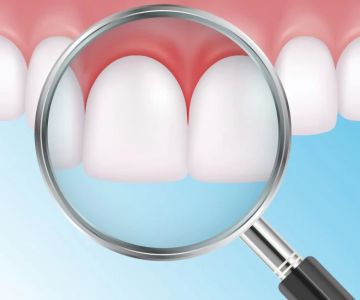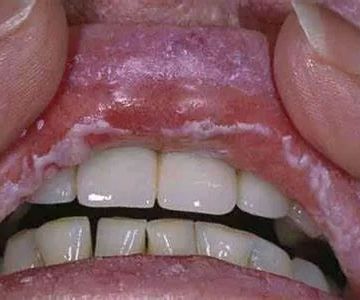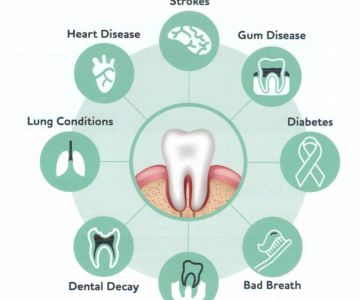Understanding Medicare's Limitations on Oral Surgery Coverage
Medicare is a vital health insurance program in the United States that primarily serves people aged 65 and older and certain younger individuals with disabilities. While Medicare covers a wide range of medical treatments, many beneficiaries are surprised to learn that it generally does not cover oral surgery related to diseases such as tooth decay, periodontal disease, or other dental problems. This lack of coverage poses challenges for those who require costly oral surgical procedures due to disease rather than injury or accident.
The key reason behind this limitation lies in the way Medicare was originally designed. Medicare Part A and Part B focus mainly on hospital and medical care, excluding routine dental care and dental surgery caused by oral disease. This gap has left millions of Americans searching for alternatives to manage oral health costs, often leading to significant out-of-pocket expenses. For example, John, a 70-year-old retiree, faced unexpected dental surgery bills after Medicare denied coverage for his disease-related oral surgery, highlighting a common experience among many beneficiaries.
How Medicare Defines Medical vs. Dental Coverage
To understand why Medicare excludes oral surgery due to disease, it’s essential to explore Medicare’s distinction between medical and dental services. Medicare considers dental care—routine cleanings, fillings, tooth extractions, and surgeries due to dental disease—as non-covered services because they are categorized separately from medical procedures.
However, Medicare does cover oral surgery in very limited cases, such as when surgery is necessary due to an accident, injury, or as part of treatment for certain medical conditions like cancer that affect the jaw or oral cavity. This distinction is crucial because it means that if the oral surgery is performed to treat an injury, Medicare Part A or B may cover it. In contrast, surgery purely for dental disease is generally excluded, leading to confusion among patients.
The Impact of Medicare's Dental Coverage Gap on Patients
The exclusion of oral surgery due to disease from Medicare coverage places a significant financial burden on many seniors and disabled individuals. Oral health is closely linked to overall health; untreated dental infections can exacerbate heart disease, diabetes, and other chronic conditions. Yet, because Medicare does not provide coverage, patients often delay or forgo necessary dental procedures.
This issue disproportionately affects lower-income seniors, who may lack supplemental dental insurance or the means to pay for out-of-pocket dental surgery. The resulting neglect can lead to worsened oral health outcomes and increased hospital visits for complications, ironically raising overall healthcare costs. Public health advocates stress the importance of closing this Medicare coverage gap to improve seniors’ quality of life and reduce systemic healthcare expenses.
Alternative Options for Covering Oral Surgery Costs
Given Medicare’s limitations, beneficiaries must explore alternative ways to cover oral surgery due to disease. One common solution is enrolling in Medicare Advantage plans (Part C), which are offered by private insurers and often include some dental benefits, including partial coverage for oral surgery.
Dental insurance plans, either standalone or bundled with other coverage, are another option. Some states also provide Medicaid dental coverage for low-income seniors, though eligibility and benefits vary widely. For patients without access to insurance, dental schools and community clinics may offer reduced-cost treatments.
How to Advocate for Better Medicare Dental Coverage
There is a growing movement among healthcare professionals and patient advocates to expand Medicare to include dental coverage, including oral surgery for disease-related conditions. Legislation has been proposed periodically to bridge this gap, emphasizing the importance of oral health to overall wellbeing.
Patients and caregivers can also advocate by sharing their experiences with policymakers, supporting dental coverage initiatives, and working with organizations dedicated to senior health. Increased awareness and demand may encourage future reforms that provide more comprehensive coverage under Medicare.
Maintaining Oral Health Without Medicare Coverage for Surgery
While navigating insurance challenges, it remains crucial for Medicare beneficiaries to maintain proactive oral hygiene to prevent disease progression requiring surgery. Regular dental check-ups, proper brushing and flossing, and early treatment of cavities or gum issues can reduce the likelihood of invasive surgery.
Healthcare providers recommend incorporating dental care into overall health routines and seeking dental consultations even if Medicare does not cover surgery. Community health programs often provide resources and education to help seniors preserve oral health affordably.
Personal Stories Highlighting the Need for Coverage Change
Mary, a 68-year-old retired teacher, struggled with chronic gum disease requiring oral surgery. When Medicare denied coverage, she faced substantial bills and delayed treatment, resulting in pain and further complications. Her story echoes those of many seniors who feel trapped between financial hardship and essential healthcare needs.
Conversely, individuals enrolled in Medicare Advantage plans that cover dental care report fewer financial barriers and better health outcomes. These contrasting experiences illustrate the critical impact of coverage decisions on patient wellbeing.
Resources for Support and Further Information
For Medicare beneficiaries seeking guidance on oral surgery coverage and dental care options, Dentistry Toothtruth offers expert advice and assistance tailored to navigating insurance complexities. Their team can help identify suitable plans, access local dental services, and plan for necessary procedures.
Navigating Medicare’s dental coverage limitations can be challenging, but with informed choices and available resources, patients can better manage their oral health and finances.







 Westgate Dental Arts3.0 (2 review)
Westgate Dental Arts3.0 (2 review) Coventry Family Dental4.0 (247 review)
Coventry Family Dental4.0 (247 review) Familia Dental3.0 (1028 review)
Familia Dental3.0 (1028 review) Dr. Daniel S. Fife, DDS4.0 (31 review)
Dr. Daniel S. Fife, DDS4.0 (31 review) Dentistry At Suburban Square: Michael I. Wollock, DMD4.0 (1228 review)
Dentistry At Suburban Square: Michael I. Wollock, DMD4.0 (1228 review) Comfort Care Dental4.0 (1156 review)
Comfort Care Dental4.0 (1156 review) The Importance of Oral Health Education During Pregnancy for a Healthy Pregnancy
The Importance of Oral Health Education During Pregnancy for a Healthy Pregnancy Why Skipping Dental Checkups Can Lead to Bigger Oral Health Problems
Why Skipping Dental Checkups Can Lead to Bigger Oral Health Problems Best Tips for Brushing Your Teeth Properly for Healthy Gums: Essential Techniques for Oral Health
Best Tips for Brushing Your Teeth Properly for Healthy Gums: Essential Techniques for Oral Health Advantages of Porcelain Dental Restorations
Advantages of Porcelain Dental Restorations How Can Diabetes Cause Tooth and Gum Problems? Preventing and Managing Oral Health Issues
How Can Diabetes Cause Tooth and Gum Problems? Preventing and Managing Oral Health Issues Healthy Habits for Promoting Good Oral Health and Hygiene: Tips for a Healthy Smile
Healthy Habits for Promoting Good Oral Health and Hygiene: Tips for a Healthy Smile